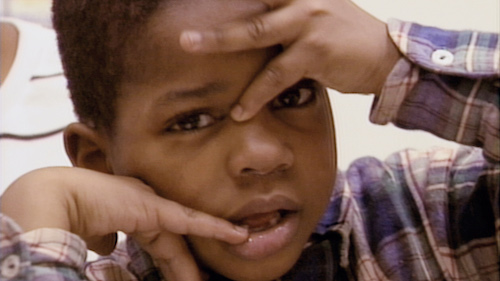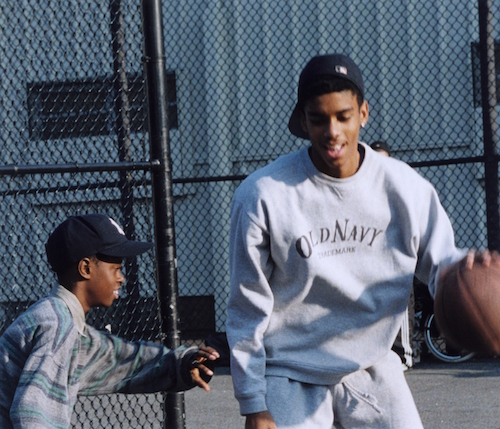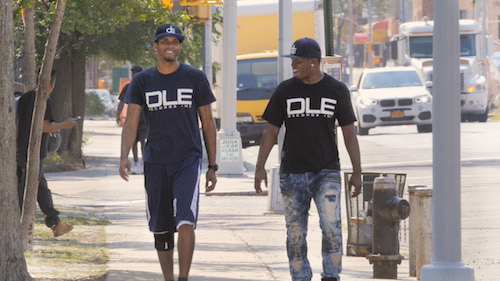Communiqué
Broken Places, Premiering Monday, April 6 at 10 pm
< < Back to broken-places-premiering-monday-april-6-at-10-pmBroken Places, Premiering Monday, April 6 on PBS
New documentary from Peabody Award-winning and two-time Academy Award-nominated filmmaker Roger Weisberg explores the devastating impact of childhood trauma and stories of remarkable resilience as part of PBS’s spring slate of health and wellness programming
PBS presents Peabody Award-winning producer/director Roger Weisberg’s new documentary Broken Places, premiering Monday, April 6 at 10 p.m. on WOUB, pbs.org/brokenplaces and the PBS Video app as part of PBS’s spring programming line-up that shines a light on health and well-being. This timely documentary revisits four abused and neglected children from Weisberg’s past documentaries and is the culmination of his four decades of bringing PBS viewers powerful stories of young people struggling to overcome adversity.

“One question emerged from all of my documentaries about children at risk: why are some children severely damaged by early trauma while others are able to thrive?” said Weisberg. “Ernest Hemingway wrote in ‘A Farewell to Arms,’ ‘The world breaks everyone and afterward many are strong at the broken places.’ Hemingway’s observation about adversity and resilience inspired the title of our film and captured the central theme we explore in Broken Places.”
There is a strong connection between early adversity and poor mental and physical health outcomes later in life. Drawing on stories from Weisberg’s 32 previous PBS documentaries as well as new interviews, Broken Places uses a dramatic time-lapse perspective to illustrate how the early experiences of the young people Weisberg filmed decades ago shaped their lives as adults. Some of the film subjects were so scarred by their childhood challenges that they ended up in mental institutions, correctional facilities, drug rehabilitation centers or died prematurely. Others became healthy, successful adults. Broken Places focuses on four personal journeys:
Bobby Gross

Weisberg featured Bobby Gross in his 1988 film, Our Children at Risk, when he was an angry five-year-old growing up in extreme poverty. He was already showing signs of aggressive anti-social behavior at home and failing in school. Weisberg’s crew filmed Bobby being examined by one of the nation’s most renowned pediatricians, Dr. T. Berry Brazelton, who painted a bleak future for Bobby in the absence of sustained early intervention. Dr. Brazelton’s prediction turned out to be eerily prescient when Weisberg revisited Bobby three decades later. Broken Places shows that he ended up spending his teenage years in and out of mental institutions and his 20s in and out of prison. Bobby briefly married and had a son, but the authorities terminated his parental rights and placed his son in foster care after Bobby was incarcerated multiple times for abusing his wife and child. At age 35, Bobby’s sole source of support is social security disability.
Daniella Rin Hover
When Weisberg first filmed Daniella Rin Hover 16 years ago for the PBS documentary Aging Out, she was bouncing around the foster care system after being severely abused and neglected as a child. While living in a group home, Daniella fell in love with Veasna Hover, who also grew up in the foster care system after his parents were murdered in Cambodia. They had their first child while they were both still living in separate group homes and had a second child a few years later. Broken Places shows that Veasna began to repeat a deeply entrenched pattern of abuse, forcing Daniella to run away with her kids to a domestic violence shelter. Despite the enormous obstacles she continues to face, Daniella works full time, leads health promotion workshops, attends college and raises her 14-year-old daughter.

Danny and Raymond Jacob
Twenty years later, Weisberg revisits Danny and Raymond Jacob, the principal subjects from his Academy Award-nominated film Why Can’t We be a Family, Again. Weisberg chronicled the struggles of these brothers after their mother abandoned them at a young age when she became addicted to crack cocaine. Broken Places shows that Danny went on to attend college, host a radio talk show and coach a basketball team for at-risk youth. His younger brother, Raymond, had a harder time overcoming his traumatic childhood and began hallucinating in his teens. He experienced a mental breakdown, was hospitalized for mental health conditions a dozen times, was diagnosed with manic depression and currently receives social security disability.
Broken Places interweaves these stories with commentary from nationally renowned experts, including Dr. Jack Shonkoff, the Director of Harvard’s Center on the Developing Child; Dr. Nadine Burke Harris, recently named the first Surgeon General of the State of California; Dr. Thomas Boyce, the Chief of the Division of Developmental Medicine at UCSF; Dr. Rahil Briggs, the National Director of HealthySteps; and Geoffrey Canada, who led the Harlem Children’s Zone for over 30 years. These experts share their insights into the people and systems that failed the film subjects or helped them overcome the formidable obstacles they encountered. They also help explain the life outcomes the film reveals: why some of the young people Weisberg profiled decades ago became severely disabled while others were able to thrive.

